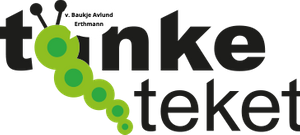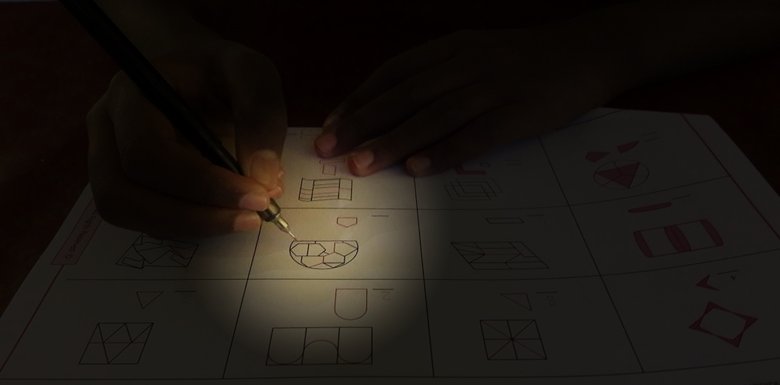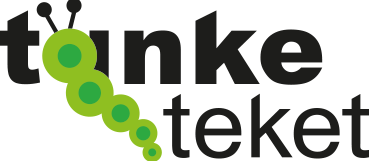Dokumentation
Dokumentation
Hvordan ved vi, at det virker?
Centralt i Feuersteins teoriværk står medieringen og herunder brobygningen. Det er ikke selve det at løse opgaverne, der skaber den kognitive forandring. Forandringen skabes af forståelsen for, hvordan principper eller strategier fra én opgave, kan overføres til en anden opgave. Derfor er interaktionen, og den individuelle tilpasning afgørende for effekten af træningen. Det er svært at måle udfra kvantitative principper. Der findes dog en del litteratur der har beskrevet og lavet undersøgelser af virkningen. Listen er ikke udtømmelig og inkluderer ikke de mange akademiske afhandlinger, der undersøger Feuersteins teoriværk. Kontakt os for yderligere information.
Feuerstein, Reuven, Louis H. Falik og Rafael S. Feuerstein (2017) Medieret Læring og Hjernens Forandringsevne - Om Reuven Feuersteins læringsteori og metode til forbedret kognition. Dafolo.
Feuerstein, R., Falik, L. H., & Feuerstein, R. S. (2015). Changing Minds and Brains-The Legacy of Reuven Feuerstein: Higher Thinking and Cognition Through Mediated Learning. Teachers College Press.
Tzuriel, D. (2014). In memoriam: Reuven Feuerstein-A giant of cognitive psychology, Journal of Cognitive Education and Psychology, 13, 289-291.
Tzuriel, D. & Hanuka-Levy, D. (2014). Siblings’ mediated learning strategies in families with andwithout children with intellectual disabilities. American Journal on Intellectual and Developmental Disabilities, 119, 565-588.
Damon, Grethe og Lars Røgils (red) (2013) Dynamisk Assessment som psykologisk-pædagogisk redskab. En introduktion til Reuven Feuersteins teori og metode. Dansk Psykologisk Forlag.
Tzuriel, D. (2013). Mediated learning experience strategies and cognitive modifiability. Journal of Cognitive Education and Psychology, 13, 59-80.
Tzuriel, D. (2013). Mediated learning experience strategies and cognitive modifiability. Journal of Cognitive Education and Psychology, 13, 59-80.
Feuerstein, R., Falik, L. H., Feuerstein, R. S., & Bohács, K. (2013). A think-aloud and talk-aloud approach to building language: Overcoming disability, delay, and deficiency. New York, NY: Teachers College Press.
Feuerstein, R., Falik, L. H., Feuerstein, R. S., Cagan, A., Yosef, L., Rosen, S., & Vok, Z. (2012). Cognitive enhancement and rehabilitation for the elder population: Application of the Feuerstein Instrumental Enrichment Program for the elderly. Life Span and Disability, 15(2), 21-33.
Feuerstein, R., & Lewin-Benham, A. (2012). What learning looks like: Mediated learning in theory and practice, K-6. New York, NY: Teachers College Press.
Jackson, Y. (2011). The pedagogy of confidence: Inspiring high intellectual performance in urban schools. New York, NY: Teachers College Press.
Tzuriel, D. (2011). Revealing the effects of cognitive education programs by dynamic assessment, Assessment in Education: Principles, Policy and Practice, 18, 113-131.
Tzuriel, D. (2011). Mediated learning and cognitive modifiability. Encyclopedia of Sciences of Learning. (pp. 2154-2157). New York: Springer Publishing.
Tzuriel, D. (2011). Mediators of learning. Encyclopedia of Sciences of Learning. (pp. 2157-2161). New York: Springer Publishing.
Tzuriel, D., Bengio, E., & Kashy-Rosenbaum, G. (2011). Cognitive modifiability, emotional-motivational factors, and behavioral characteristics among gifted versus non-gifted children. Journal of Cognitive Education and Psychology, 10, 253-279.
Feuerstein, R., Feuerstein, R. S., & Falik, L. H. (2010). Beyond smarter: Mediated learning and the brain's capacity for change. New York, NY: Teachers College Press.
Kloppers, M. M., & Grosser, M. M. (2010). Exploring the impact of Feuerstein’s Instrumental Enrichment Programme on the cognitive development of prospective mathematics educators. TD The Journal for Transdisciplinary Research in Southern Africa, 6(2), 359-378.
Tzuriel, D. & Flor-Maduel, H. (2010). Prediction of early literacy by analogical thinking modifiability among kindergarten children. Journal of Cognitive Education and Psychology, 9, 207-227.
Karpov, Y. & Tzuriel, D. (2009). Dynamic assessment: Progress, problems, and prospects. Journal of Cognitive Education and Psychology, 8, 228-237.
Burgess, R. V., & Gilg, J. E. (2008). Changing brain structure through cross-cultural learning: The life of Reuven Feuerstein. New York, NY: Edwin Mellen Press.
Tzuriel, D. & Shamir, A. (2007). The effects of peer mediation with young children (PMYC) on children’s cognitive modifiability. British Journal of Educational Psychology, 77, 143-165.
Shamir, A., & Tzuriel, D. (2004). Children’s mediational teaching style as a function of intervention for cross-age peer-mediation. School Psychology International, 25, 58-97.
Tan, O. S. (2003). Mediated learning and pedagogy: Applications of Feuerstein's theory in twenty-first century education. REACT, 2003(1), 53-63.
Kozulin, A., Rand, Y., & European Association for Research on Learning and Instruction. (2000). Experience of mediated learning: An impact of Feuerstein's theory in education and psychology. Amsterdam, Netherlands: Pergamon.
Tzuriel, D. & Samuels, M.T. (2000). Dynamic assessment of learning potential: Inter-rater reliability of deficient cognitive functions, type of mediation, and non-intellective factors. Journal of Cognitive Education and Psychology, 1, 1-23.
Sharron, H., & Coulter, M. (1996). Changing children's minds: Feuerstein's revolution in the teaching of intelligence. London, England: Imaginative Minds.
Messerer, J., Hunt, E., Meyers, G., & Lerner, J. (1984). Feuerstein's instrumental enrichment: A new approach for activating intellectual potential in learning disabled youth. Journal of Learning Disabilities, 17(6), 322-325.
Rand, Y., Tannenbaum, A. J., & Feuerstein, R. (1979). Effects of instrumental enrichment on the psychoeducational development of low-functioning adolescents. Journal of Educational Psychology, 71(6), 751-763.





